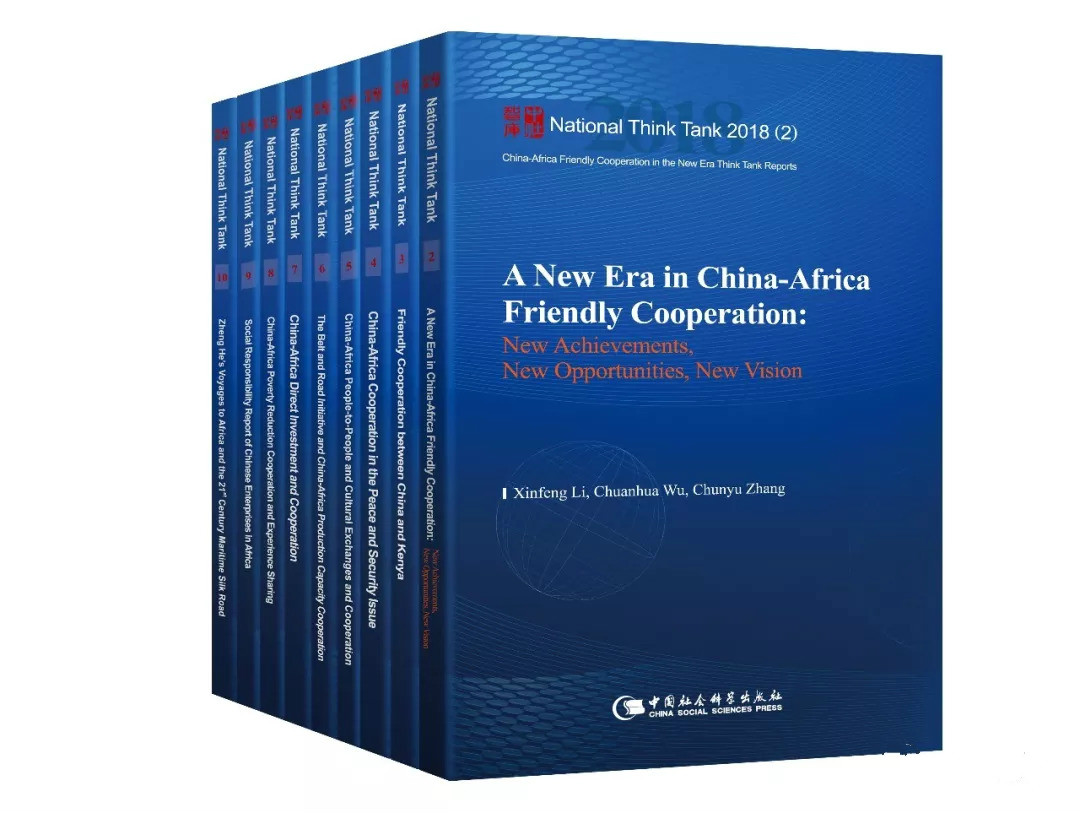Six decades of African studies in China

Serial think tank publication A New Era in China-Africa Friendly Cooperation: New Achievements, New Opportunities, New Vision was a collaborative project by the The Institute of West-Asian and African Studies and the Bureau of International Cooperation under the Chinese Academy of Social Sciences. Photo: FILE
The Institute of West-Asian and African Studies under the Chinese Academy of Social Sciences (CASS) started research after preparations in 1959. Over those six decades, the institute has undergone ups and downs in the performance of its responsibilities as the pioneer of African studies in China, laying the foundation for the field. In a sense, its course of development displays the evolution of African research in the country. From the perspective of academic history, the institute’s African studies can be split into two periods before and after 1981, when CASS took it over. Each period displayed the distinctive characteristics of its time.
China’s organized African studies began when the Institute of West-Asian and African Studies, the country’s first research institute specializing in African issues, was launched in 1961. In fact, the establishment of the institute was to provide decision-making consultation for the Party and the government. Such a purpose decided the role of the institute and its studies as a practical one.
In its first two decades, the institute achieved remarkable results. The achievements of this period can be broadly divided according to two aspects. One is academic papers and publicly or internally published works of limited number. The representative works are the African Handbooks series, which was continually published between 1962 and 1966, and the 1981 An Introduction to Africa. The other aspect refers to internal materials and research reports. There were many such achievements concerning most African issues related to China, such as African politics, diplomacy, economy, people and events. These documents were unknown to the public as they were printed in internal publications or, in most cases, reports to active departments.
In 1981, governance of the institute was transferred from the Central Liaison Department to CASS, so its guiding principles and research missions changed accordingly. In the 1980s, its research focus transitioned from studies on African practical issues to those on basic theoretical research and applied countermeasures. After entering the 1990s, the institute worked out a wiser disciplinary structure. Under the second-level discipline of African studies, it set up four tertiary disciplines, African politics, African economy, African society and culture, and African international relations. From 2006 onward, the studies on countermeasures to major real-world issues have become more targeted. During its first four decades, the institute produced a large amount of high-quality academic and think tank research.
In the field of basic theoretical research, the institute has publisheda series of monographs and papers with vast learning and considerable repercussions in academic circles. Some of them have served as the bedrock of related disciplines while others have filled gaps in domestic research. According to incomplete statistics, the institute has published more than 200 academic works and reference books and over 2,000 papers during its time. More than 200 research results have been honored by CASS and its departments at provincial, ministerial or national levels.
The Concise African Encyclopedia (2000) edited by Ge Wei and the Concise Encyclopedia of West Asia and North Africa (2000) edited by Zhao Guozhong were identified by the General Administration of Press and Publication as the key topics and cases between 1990 and 2000. They are the first two large-scale compilations to introduce the history and current situations of countries in sub-Saharan Africa, West Asia and North Africa. Yang Guang and Wen Boyou organized the compilation of Records of African Countries, a foundational research project conducted from 2000 to 2010. The project team released 33 volumes, which makes it the most well-rounded and systematic country study so far.
As the largest multidisciplinary African research organization, the Institute of West-Asian and African Studies also has achieved a lot in countermeasure research and think tank construction. At present, it involves four fields concerning think tanks. It works for decision-making departments such as the General Office of the CPC Central Committee, the General Office of the State Council and the Publicity Department of the CPC. It submits various reports to information collection departments through CASS’s crucial news system. Also, it undertakes projects entrusted by the government and national high-level think tanks. Apart from the aforementioned internal reports, the institute publishes “Think Tank Report” and “Report on African Development.” The institute, without question, is a powerhouse for think tank research on African issues when measured by its academic, societal and global influence, especially its authority in decision-making.
(edited by YANG LANLAN)

 PRINT
PRINT CLOSE
CLOSE